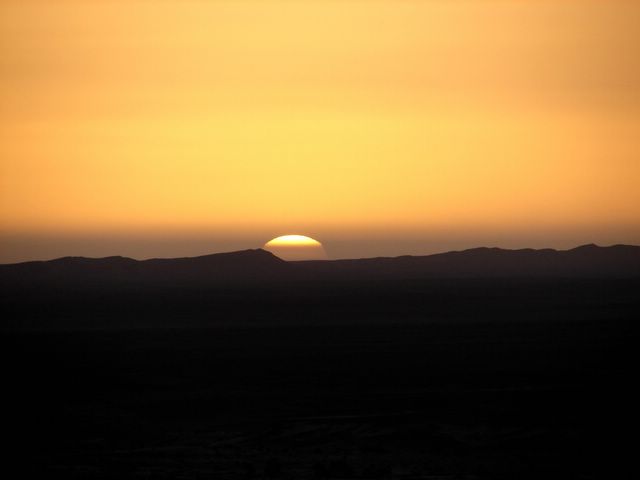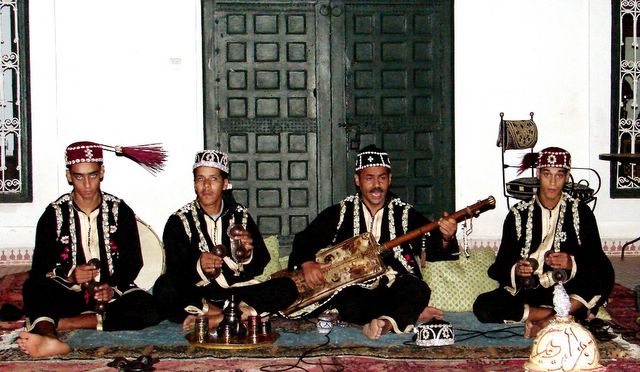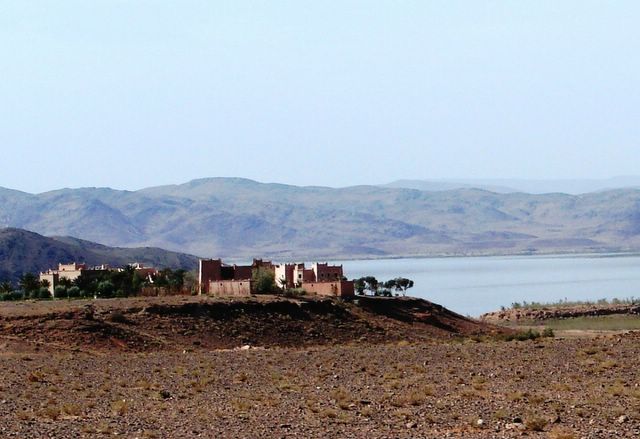Islamic Extremism: Common Concern for Muslim and Western Publics
From The Pew Global Attitudes Project, co-chaired by former U.S. Secretary of State Madeleine K. Albright and by former Senator John C. Danforth.
Support for Terror Wanes Among Muslim Publics
Concerns about Islamic extremism, widespread in the West even before this month’s terrorist attacks in London, are shared to a considerable degree by the publics in several predominantly Muslim nations, most notably Morocco, Pakistan, Turkey and Indonesia. Most Muslim publics are also expressing less support for acts of terrorism in defense of Islam and less confidence in Osama bin Laden.
Yet, the latest survey by the Pew Global Attitudes Project, conducted this spring among more than 17,000 people in 17 countries, finds that Muslim and non-Muslim publics have very different attitudes with regard to the impact of Islam on their countries.
While publics in predominantly Muslim countries voice concerns that Islamic extremism can lead to violence, fewer personal freedoms, internal divisions, and retarded economic development, the balance of opinion is that Islam is playing a larger political role in their nations, and most welcome that development. Turkey is a clear exception: there the public is divided about the desirability of a larger political role for Islam.
In non-Muslim countries, fears of Islamic extremism are closely associated with worries that Muslims living there do not want to adopt their nation’s customs and way of life. There is also a widespread perception, including among Americans, that resident Muslims have a strong and growing sense of Islamic identity—a development that is viewed especially negatively in France, Germany and the Netherlands.
Other findings detailed in this, the second release based on the survey, include:
* Large and growing majorities in some predominantly Muslim countries—notably Morocco, Lebanon, Jordan and Indonesia—continue to say that democracy can work well in their own countries. Yet, except in Indonesia and Jordan where views are divided, Muslims in these countries are far more likely to think of themselves first as a Muslim rather than as a citizen of their particular country.
* Further ambivalence with respect to the role of Islam in political life is seen in the tendency of Muslims who see Islam’s role increasing also to be more likely to say that Islamic extremism poses a threat to their home countries.
* Support for acts of terrorism in defense of Islam has declined significantly in all majority-Muslim countries surveyed. Only in Jordan does a majority (57%) still find such acts justified. But opinion is divided over suicide bomber attacks on Americans and other Westerners in Iraq: Substantial majorities in Turkey, Pakistan and Indonesia find such attacks are not justifiable, but nearly half of Muslims in Lebanon and Jordan, and 56% in Morocco say they are. Confidence in Osama bin Laden has also fallen to low levels in most of these countries with the exception of Jordan and Pakistan.
* Among predominantly Muslim countries, nearly three-quarters of Moroccans, who witnessed a devastating terrorist attack two years ago, and roughly half of Pakistanis, Turks and Indonesians, see Islamic extremism as a threat in their own countries. Views are mixed on the causes of such extremism with U.S. policies and influence most frequently cited in Lebanon and Jordan, poverty and lack of jobs in Morocco and Pakistan, immorality in Indonesia and lack of education in Turkey.
* In the non-Muslim world, concerns about Islamic extremism—both within their own borders and around the world—is most intense in Russia, India, Spain and Germany. However, worry also runs high in France and the Netherlands. Before this month’s terrorist attacks in London, Britons and Americans expressed more concern about extremist attacks around the world than in their home countries.
* Europeans attitudes toward the admission of Turkey into the European Union appear to be associated to some degree with concerns about Islamic extremism but even more strongly with negative views about immigration. Opposition is strongest in Germany and France as well as the Netherlands, while support for Turkey’s admission is strongest in Spain and Great Britain.
* Despite concerns about Islamic identity and extremism, majorities of the publics of most countries in Europe and North America hold favorable views of Muslims; only in the Netherlands and Germany do opinions tilt to the negative. However, people in predominantly Muslim countries hold mixed views of Christians and strongly negative views of Jews.
* Bans on the wearing of head scarves by Muslim women are heavily opposed in majority-Muslim countries (including Turkey), but are favored by large majorities in France and India and small majorities in Germany and the Netherlands.
* While majorities in five of the six Muslim countries surveyed still hold unfavorable views of the U.S., a majority of Moroccans now report having a favorable opinion. In Morocco, as well as in Lebanon, Pakistan and Turkey, young people are more likely to give favorable marks to the U.S. than are older people. In most Muslim countries, women are also somewhat more likely than men to look positively on the U.S. although they are also less likely to offer an opinion.
View Report


























7 Comments:
trés bein jawad
July 15, 2005
It's not about extremism, it's all about justice.
July 18, 2005
Tres interessant mon frere!
July 18, 2005
Hanaa: Bienvenue sur mon blog. J'espere que tu reviendras :)
Luis R: Would you elaborate pls?
Lauren: Tu me manque ma soeur. Did J get the job?
July 19, 2005
The French also hold negative views of Muslims, there have been several opinion polls that show that they dislike Muslims either "more than blacks" or "very much", I remember one in Le Monde not too long ago.
July 21, 2005
Huh!
Les muslims l'ont vraiment cherche en supportant des idées tres extermistes. Quand on voit que les marocains ou jordaniens sont racistes à 90% (moyenne) contre les juifs et chretiens...normal que les autres peuples ne sentent que reticence envers eux... ... je suis marocain et je sais de quoi je parle. Et pourtant je ne suis pas axe sur la religion.. en ce qui me concerne, les religions sont des armes politiques ... et quoi qu'on fasse, il y'aura toujours un beta de sous developpe qui se croirat plus musulman que les autres et ira peter une bomber et tuer des innocents. .. a croire que 'Gehenna' (enfer) sera remplie que par des terroristes extremistes (eux les pauvres, ils croient qu'ils iront au paradis faire la connaissance de vierges... bullshit'
July 25, 2005
@Nourddine:
Welcome to my blog. We are being pulled into different directions and radically polarized and that's very troublesome. Radical opinion has become somewhat fashionable now - I can not help but think of the heavy price humanity will continue to pay in order to feed its narrow-minded need to belong.
@Cat's Daydreamer:
Bienvenue sur mon blog. Je suis aussi Marocain et comme toi je trouve révoltant le fait qu'au sein de notre société on permet des comportements haineux et racistes comme si rien n'était. J'en ai parle a plusieurs reprise et condamner la façon dont on parle surtout des noirs et des juifs ds notre pays. Cela me dégoûte et c'est pour ça que j'appelle a chaque fois que je px a une analyse de soi-même avant de se permettre de blâmer le monde. Qu'on ne peut acquérir le droit de montrer du doigt les maux des autres quand on continue d’ignorer l’obscénité de notre propre saleté.
Mais cela ne veut pas dire qu'on peut être aussi fataliste jusqu'a dire: "Les muslims l'ont vraiment cherche en supportant des idées très extrémistes." Je suis un Musulman qui est révolté par l'extrémisme et qui travaille pour la promotion de la dignité humaine partout - et je ne suis pas seul. Il y en a plein et tu les trouveras en faisant le tour de plusieurs blog marocains. Donc, au minimum ton assertion ferait de tout ces gens des victimes de généralisme.
July 25, 2005
Post a Comment
<< Home